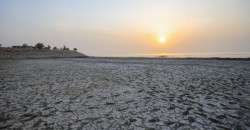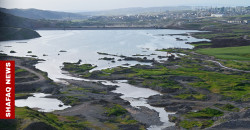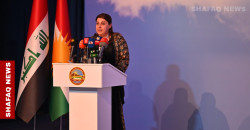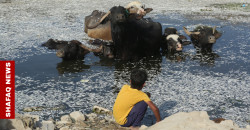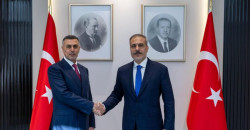Drought and conflict: Iraq's fight for water and energy security
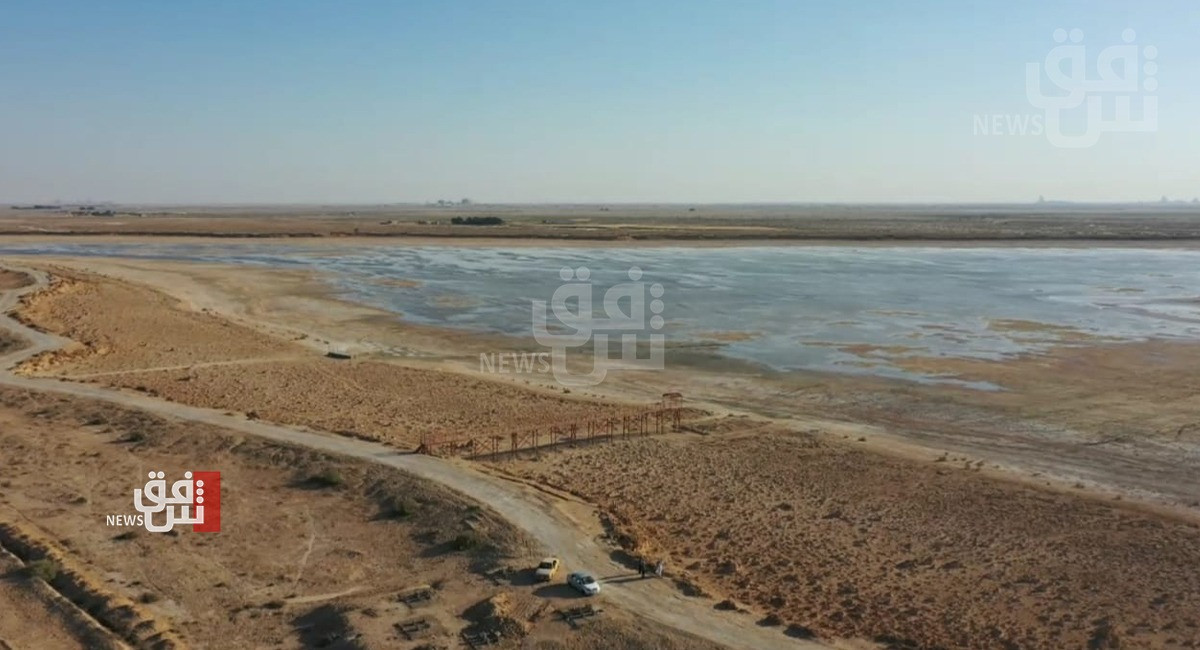
Shafaq News/ As the world faces a climate crisis, the once-bountiful Euphrates and Tigris rivers in the Middle East are drying up, threatening agriculture and energy production in Iraq and the surrounding region steeped in history.
In 2023, approximately 14% of the world's electricity consumption was generated from hydroelectric plants. As revealed by the International Energy Agency (IEA), this figure must double by 2050 to achieve the goal of limiting global warming to 1.5°C.
However, in the first half of 2023, global hydroelectric power generation experienced a historic decline of 8.5% due to severe droughts and dwindling rivers and reservoirs in China, the largest producer of hydroelectric energy in the world.
With water scarcity increasing and future conflicts looming over shared resources, urgent calls for innovative solutions and regional cooperation grow louder.
Water Crisis Threatening Cradle of Civilization
Hydroelectric power stations in the Middle East have faced increasing challenges due to prolonged drought conditions, particularly in a region once considered one of the most fertile, where the Euphrates and Tigris rivers flow. “Mesopotamia is one of the fastest-drying regions in the world,” said Benjamin Pohl, Head of Programme Climate Diplomacy and Security at the German research center Adelphi, during an interview with DW.
The two rivers originate in eastern Turkiye, traverse Syria, and flow into Iraq before emptying into the Gulf. “The system of these rivers used to nourish the cradle of human civilization,” Pohl added. However, ongoing drought, high evaporation rates, and low rainfall have led to a continuous decline in water resources. Consequently, riparian countries are encountering significant difficulties in supplying water for agricultural needs and power generation.
For hydroelectric stations built 30 years ago near the sources of the Tigris and Euphrates in Turkiye, energy production has decreased by approximately 25%, according to studies conducted by Dursun Yıldız, Chairman of the Board of Directors of the Water Policy Association.
“The decline in electricity production is closely linked to the region’s drought,” the expert stated, attributing the decrease in rainfall and snow to climate change, and projecting that the current water level of the Euphrates River could drop by 30 to 40% by the end of the century. “This reduction in water availability will also impact downstream countries.”
Drought Dims Iraq's Lights
Iraq's electricity crisis is compounded by a decline in the flow of the Tigris and Euphrates rivers, as indicated by a study from Samir Al-Jubouri, an energy expert at Al-Kitab University in Kirkuk, northern Iraq. The flow dropped significantly in 2019, primarily because riparian countries like Turkiye are retaining water for irrigation and hydroelectric stations. Additionally, Benjamin Pohl noted that "dams in Iran also reduce water flows into Iraq."
Al-Jubouri utilized 12 different climate models to assess the decreasing water flow over the decades. He forecasted that climate change will exacerbate this decline, potentially resulting in hydroelectric energy production losses ranging from 5% to 18% by 2050. Although these figures may appear modest compared to Turkiye's current 25% reduction, the energy expert warned during an interview with DW that such losses "will likely increase the burden on Iraq’s energy system."
Currently, Iraq faces challenges in meeting its electricity needs, making hydroelectric power a crucial renewable energy source to lessen its reliance on fossil fuels like oil and gas. The frequency of severe droughts in the Tigris and Euphrates basins has markedly increased, occurring approximately every 10 years now compared to every 250 years in the past. This trend is highlighted in a report from the World Weather Attribution (WWA) research center in London, which examines the connection between extreme weather events and climate change.
In light of the ongoing drought and extreme heat in Iraq, Al-Jubouri emphasized that renewable energy and the construction of more efficient hydroelectric power stations could play a pivotal role in addressing climate change and securing energy in a post-fossil-fuel era. He advocated for improved resource management through water recycling and the establishment of small dams to capture excess rainwater.
"Water recycling and small dams are valuable ways to address local water shortages and enhance drought resistance," Al-Jubouri stated. "Climate-resilient agricultural practices and regional cooperation are essential for optimizing the use of precious water resources.”
Shared Waters, Shared Future
WWA calculations indicated that the drought in the Tigris and Euphrates basins from 2020 to 2023 was classified as "the second-worst drought on record," linked to rising temperatures. This extended dry period has significantly affected many people who depend on rainwater for agricultural irrigation.
"Some areas in Syria and Iraq have completely dried up," affirmed Naama Sharif, a Syrian researcher based in Germany and an expert in water management in the Middle East and North Africa. The worsening drought conditions have forced many residents to abandon their villages.
Sharif warned, "Future wars will be fought over water," due to disputes over water shares and dam constructions, particularly in Turkiye, attributing the problem to “political factors."
The need for regional cooperation is urgent, according to Sharif, who insisted, "We need to sit at the negotiating table" to address these challenges.
In this regard, German researcher Pohl concurred, noting that improved cooperation and water management are "in everyone's interest" among the riparian countries along the Tigris and Euphrates. He pointed out that collaboration is crucial for obtaining clean electricity from hydroelectric plants and for mitigating the impacts of the climate crisis.
Countries affected by conflicts, such as Iraq and Syria, are actively seeking investments to adapt more effectively to climate change. Pohl highlighted the importance of updating outdated agreements concerning the shared waters of the Tigris and Euphrates, stating it is critical to "boosting the use of resources in the entire region." However, he noted that negotiations for new binding agreements have yet to commence.
Iraq's Energy Diversification Initiatives
Iraq is actively seeking solutions to its energy crisis through strategic projects aimed at diversifying its energy resources and reducing reliance on Iranian imports. The recent inauguration of a 115-kilometer power line connecting Turkiye and Iraq, which can deliver 300 megawatts of electricity, represents a remarkable step in this strategy. This new line aims to enhance power supply in northern Iraq, particularly in Nineveh, Saladin, and Kirkuk, amid ongoing power outages and summer heat.
Prime Minister Mohammed Shia al-Sudani emphasized the importance of this project in linking Iraq to neighboring countries and increasing energy security. The power line is part of a broader effort to integrate into the regional energy grid, alongside initiatives to connect with the Gulf Cooperation Council (GCC) and Jordan. As Iraq strengthens its energy partnerships with Turkiye and the GCC, it seeks to reshape its geopolitical alliances while mitigating Iran's influence in its energy sector.
The Iraqi government's focus on energy diversification aligns with broader regional dynamics, as Tehran faces its own challenges in supplying power to Iraq due to internal inefficiencies and strained infrastructure. By pursuing new energy connections, Iraq aims to achieve greater energy self-sufficiency and stability in the face of climate-related challenges, ultimately striving for a more sustainable and secure energy future.
